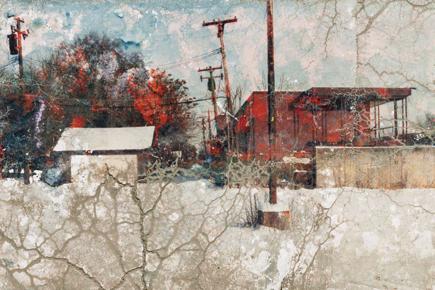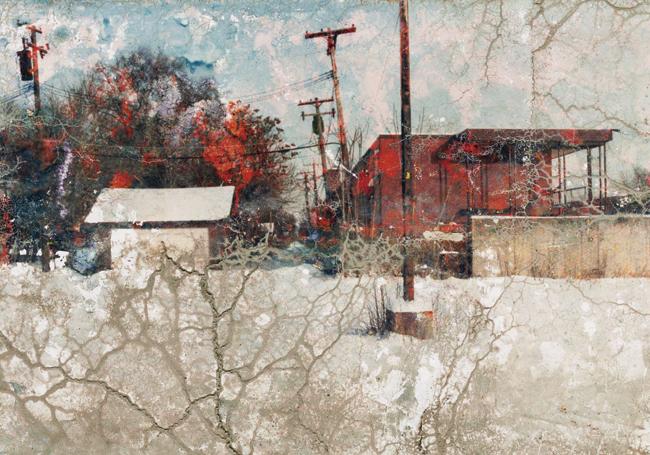Found Photos in Detroit blurs the line between photography and painting with recovered images from Detroit that reflect the decay in the American city, post the socio-economical crisis in the 1970s

An untitled polaroid image from the series depicting the city of Detroit
The project, Found Photos in Detroit, was initiated in 2009 by Italian photojournalists Arianna Arcara and Luca Santese, members of Cesura Group, a photographers’ collective which represents projects.
ADVERTISEMENT

Untitled polaroid images from the series depicting photographs of people, which were found on the streets
All in a frame
The duo had initially planned this project in a reportage format to highlight the current abandon of Detroit, as a consequence of the socio-economical crisis that hit the city from the mid-1970s. During their first trip to the city, Arcara and Santese came across documents close to public buildings like police stations, schools, tribunals and hospitals. They sifted through thousands of polaroids, letters, prints of photographic evidence, police documents, mug-shots and family albums. That is when they decided to shelve the idea of reporting and instead focus on reconstructive editing to create an archive of Found Photos in Detroit 2009-2010.

An untitled polaroid image from the series depicting the city of Detroit
A series of images were displayed and a selection of their findings were also published in the book, titled Found Photos in Detroit. Photos from this series will be displayed in Mumbai as part of an exhibition by the same name.
Curated by Milan and London-based curator Caterina Corni, the exhibition is part of the Focus Photography Festival. At the event, 11 large-sized photos from the series will be on display. Also showcased will be a special photo, which won the World Press Photo award in 2009.

Recounting the experience, Arcara shares, “When we first set foot in Detroit, we had planned to document the disappearance of the city’s structure and the tales of modern-day ruin. We were working on the American economic crisis and Detroit was a symbol of that. We were looking for a way to speak about that place and, in some way, it had self-revealed in a physical form. In principle, it was just a bunch of muddy polaroid. Today, we believe we gave a shape to a documentation which we hope will be recognised for its historical value.”
Santese adds that once they found the first few pictures, they started a methodical search for the lost photos around Detroit. “In six weeks, we had gathered about 1,500 items. In our home studio in Italy, we went directly to the editing process to assemble an exposition, and from there the project has brought us to the book. What we liked about the project was how it could open several dialogues: photographic and sociological.”
What’s in store?
Caterina Corni elaborates about the exhibition: “The operation carried out by Arcara and Santese is that of removing the photographs-documents from their original context, and stripping them of their original role. The object that belongs to the everyday is de-contextualised and raised to the level of artwork. If it is true that photography is the only medium capable of freely recounting history and society, Found Photos in Detroit may be included among the most significant examples of it.”
Among Corni’s favourite exhibits, she cites the diptych (a work of two parts) image showcasing the deformed chest of a man paired with the corrosion on a landscape. “They have a double meaning, because there is a fine line between photography and painting,” she explains.
Corni admits that she got several requests (for this show) from American and European cities, but chose Mumbai as she found it to be ‘the most exciting and vibrant city in the world’. “Mumbaikars are curious, receptive and could a curator ask for more?” she quips.
 Subscribe today by clicking the link and stay updated with the latest news!" Click here!
Subscribe today by clicking the link and stay updated with the latest news!" Click here!






